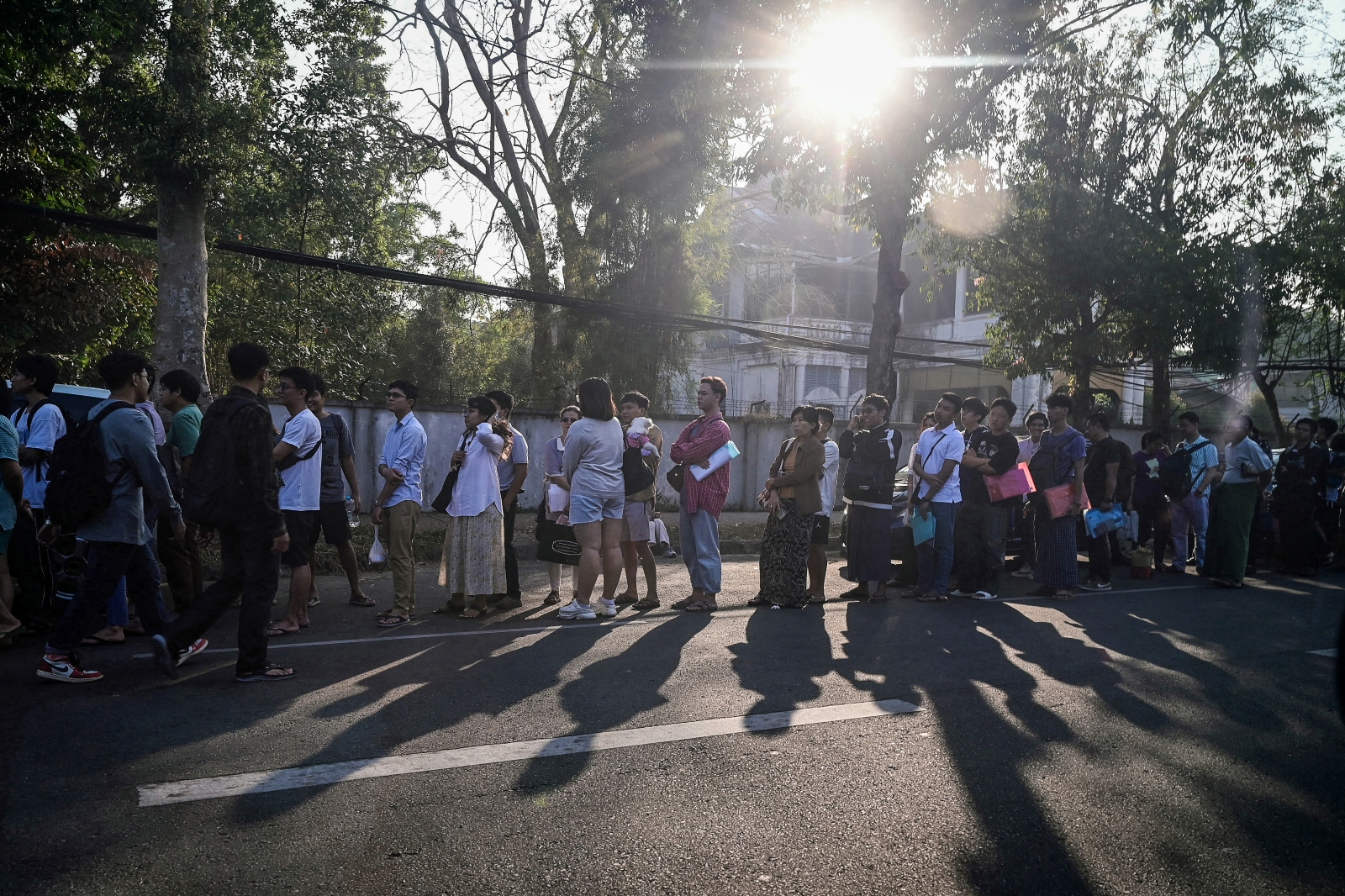The biggest prize in the upcoming election is the presidency. Wide-reaching executive powers are vested in the head of state. The President appoints ministers to his cabinet and also chooses the chief ministers of the states and regions, who in turn have considerable executive powers at their disposal.
Much of the manoeuvring between the Union Solidarity and Development Party and the National League for Democracy should be seen against this backdrop. The USDP and the NLD are each grappling with the same question: how can they win the presidency?
The USDP is unpopular, so it cannot depend on popular appeal to win the vote and secure the presidency. But at the same time, the ruling elites are anxious to retain as much political and economic power as possible.
The ‘right’ outcome for the USDP is a majority in parliament with the support of the unelected military bloc. Chaos and irregularities might help to achieve this objective. They could serve as a blanket to obscure trickery. Chaos could also be used as an excuse by the Union Election Commission to annul the results of the election if they are not to its liking.
In the USDP/military bloc majority scenario either U Thein Sein or Senior General Min Aung Hlaing could be fast-tracked to the presidency.
Support more independent journalism like this. Sign up to be a Frontier member.
But the USDP also needs a Plan B that takes into account the enormous popularity of the National League for Democracy.
It could very well be that ousted USDP chairman Thura U Shwe Mann is the ruling party’s ace in this backup strategy. In recent months the Speaker of the Pyithu Hluttaw has positioned himself as a progressive. Despite his dramatic removal as USDP chair on August 12 he was notably not recalled as an MP. Had the USDP or the military really wanted, he could have been removed from the scene altogether. The leaking to the media of documents suggesting that Thura U Shwe Mann is a reformist and his recent comments in 7 Day News about the presidency are indications that the ‘progressive Shwe Mann’ narrative might not be coincidental.
Why is it important for Thura U Shwe Mann to be seen as progressive and to create distance between him and the USDP?
The answer could be quite simple: to make him an acceptable presidential nominee of the NLD and secure the position with the support of the main opposition party. The constitution makes NLD leader Daw Aung San Suu Kyi ineligible for the presidency.
“The USDP government and its predecessor, the State Peace and Development Council, have been adept at exploiting Daw Aung San Suu Kyi whenever it suited them.”
Sources close to Thura U Shwe Mann say he is in daily contact on Viber with Daw Aung San Suu Kyi. The Speaker has something to offer as well: extra support. It is an open secret that many in the USDP still are in his corner and that he promised the Rakhine National Party the chief minister’s post in Rakhine if it supports his nomination for the presidency. The RNP can play a key role in the presidential race because it is likely to win the most seats in the troubled state.
This begs the question whether Daw Aung San Suu Kyi is again merely a pawn in a larger chess game. The USDP government and its predecessor, the State Peace and Development Council, have been adept at exploiting Daw Aung San Suu Kyi whenever it suited them.
The junta did this in November 2010 when it released Daw Aung San Suu Kyi a few days after the fraudulent elections that the NLD boycotted. The international community’s focus immediately shifted to the democracy icon and away from the scandal over advance votes.
The USDP government exploited the NLD leader’s domestic and international popularity when it persuaded her to return to the political arena ahead of the by-elections in 2012, in which her party won 43 of the 44 seats it contested. The minority – a modest price to pay – was enough to convince the international community to lift sanctions. Mission accomplished.
There’s a possibility the NLD leader, who has long been eager for power, might again be outplayed. Thura U Shwe Mann has reportedly promised to support constitutional amendments and for her to assume the presidency mid-term.
Thura U Shwe Mann is a shrewd and ambitious politician who served in the Tatmadaw for 41 years. He graduated from the Defence Services Academy in 1969 and retired from the army in September 2010. Loyalty lies at the core of being in the Tatmadaw. Will Thura U Shwe Mann remain a soldier or will his loyalty shift? The next few months may tel






